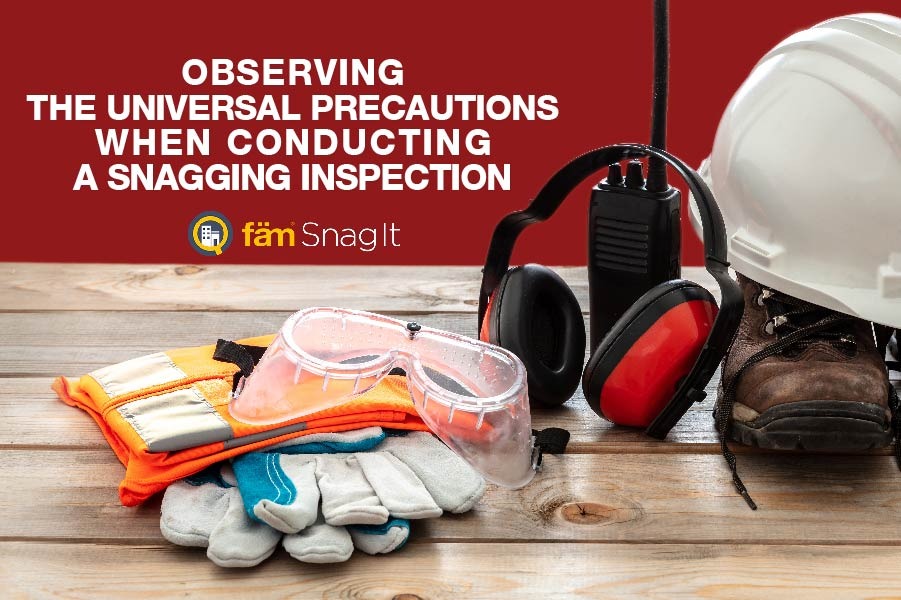
In the world of real estate, there are numerous lists of things to accomplish, but none of them are as important as the one that involves snagging. That list includes items that still need to be completed when a building has been finished. While a developer can simply use a sheet of paper to compile the list and work on everything, it is not the best solution in this new normal. We have to take precautions before conducting snagging inspection, one of these precautions is creating safety measures before we start the snagging.
Our Snagging Tools
Any home inspector should have a list of the most common tools. A good home inspection should cover all areas in the house and carry all the needed tools to be always ready. These are lists of the important tools that our home inspector should have:
1) THERMAL CAMERA: it allows home inspection professionals to look beyond physical elements that are not visible to the naked eye.
2) INDOOR AIR QUALITY MONITORS: fäm inspector has a wide range of devices available that can measure Carbon Monoxide and Carbon Dioxide levels down to small amounts.
3) NATURAL AND COMBUSTIBLE GAS LEAK DETECTOR: fäm inspector specialized instrument can detect natural gas, Methane, Ethane, Petrol...etc. With early detection, accidents can be avoided.
4) Other tools that fäm inspector have:
A)Sound Meter
B) Electrical Socket Tester
C) Temp & Humidity Meter
D) IR Non-Contact Thermometer
E) Non-Contact Voltage Tester
F) Moisture Meter
G) Moisture Meter (Microwave Type)
H) Borescope
I) Laser Measure & Level Meter
Inspector Safety Equipment & Personal Protective Equipment (PPE)
Inspectors when conducting the snagging inspection in the property with the presence of the homeowner should be able to prevent any defects inherent in inspections, as well as wear appropriate personal protective equipment (PPE) that will prevent injury and/or illness on the job.
Respirator, coverall, and gloves are personal protective equipment. For inspections that will require the snagging inspector to conduct the procedure alone, droplet isolation precaution measures may suffice. The tools are a means to protect ourselves from getting infected during the snagging or getting hurt. These are top protective tools for our engineers:
Gloves
Rubber or leather gloves are important for inspecting electrical panels to reduce the chance of accidental shock. Also, they could keep you from COVID infection.
Respirators
Full-face respirators may provide greater protection against the CoronaVirus.
Coveralls
They are effective barriers against any possible harms.
Goggles
Goggles can protect against many types of harmful airborne substances.
Communication with the clients
There are multiple ways of keeping in touch with us, one of them is through visiting our website: https://famproperties.com.
You may also connect with us through Whatsapp or our email: info@inspect-my-property.com